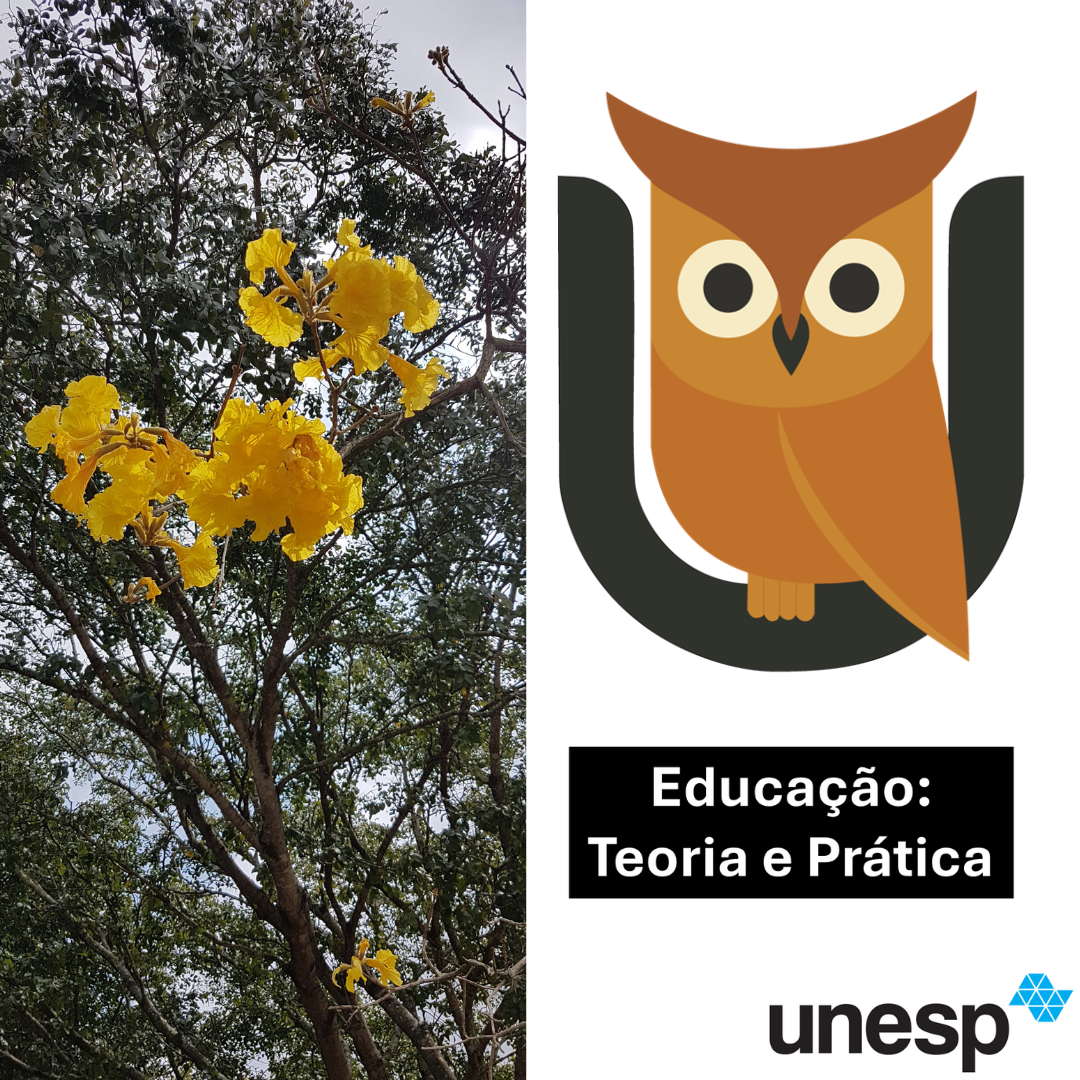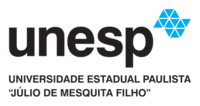Aprendizagem criativa: uma pesquisa bibliográfica sobre o conceito na produção científica brasileira
DOI:
https://doi.org/10.18675/1981-8106.v35.n.69.s17401Palavras-chave:
Pesquisa bibliográfica. Aprendizagem criativa. Processo de ensino-aprendizagem. Criatividade. Metodologias ativas.Resumo
O artigo apresenta uma síntese integrativa da produção científica que incorpora conceitualmente a aprendizagem criativa. Do ponto de vista metodológico, ampara-se em uma pesquisa bibliográfica desenvolvida durante o mês de março de 2022 a partir do principal repositório acadêmico do país, o Catálogo de Teses & Dissertações da Coordenação de Aperfeiçoamento de Pessoal de Nível Superior (CAPES). Foram encontrados 57 resultados. Com base nos documentos, estruturou-se a discussão, especificamente, sob cinco eixos: 1) características das formulações conceituais relacionadas com a aprendizagem criativa; 2) áreas do conhecimento que mais têm se debruçado sobre o tema; 3) autoras e os autores mais mencionados; 4) aspectos geográficos e institucionais da produção sobre aprendizagem criativa; 5) tipo e o volume da produção relativa às tecnologias digitais no contexto da aprendizagem. Observou-se, ao fim, que, embora o assunto esteja na agenda dos pesquisadores brasileiros e em ascensão, a intrínseca complexidade epistêmica do objeto espelha limitações e abre novas possibilidades teóricas.
Referências
ALMEIDA, P. de; MUNIZ, L. S. Subjective Configurations of Action and the Emergence of Creative Learning. In: GONZÁLEZ REY, F. L.; MITJÁNS MARTÍNEZ, A.; GOULART, D. M. Subjectivity within cultural-historical approach. Perspectives in Cultural-Historical Research, v. 5, p. 183-198, 2019.
BACICH, L.; MORAN, J. M. (org.). Metodologias ativas para uma educação inovadora: uma abordagem teórico-prática. Porto Alegre: Penso, 2018. xxii, 238 p.
BEINEKE, V. Aprendizagem musical criativa em tempos de pandemia: (re)compondo perspectivas e (im) possibilidades. Revista Orfeu, v. 6, n. 2, p. 30-47, 2021.
BEINEKE, V. Crianças como críticos musicais em sala de aula: processos intersubjetivos na aprendizagem criativa. Opus, v. 24, n. 1, p. 153-166, 2018.
BEINEKE, V. Processos intersubjetivos na composição musical de crianças: um estudo sobre a aprendizagem criativa. 2009. 289 f. Tese (Doutorado em Música) - Instituto de Artes, Universidade Federal do Rio Grande do Sul, Porto Alegre, 2009.
BOON, B. Bibliographic Research. In: ALLEN, M. (ed.). The SAGE encyclopedia of communication research methods. SAGE publications, 2017.
BRASIL. Ministério da Educação. Base Nacional Comum Curricular. Brasília, 2018.
CRAFT, A. Creativity in Schools: tensions and dilemmas. London: Routledge, 2005.
DARSIE, C.; MORETTI, C. Z. Apresentação – A educação é um território de responsabilidades. Reflexão e Ação, v. 30, n. 2, p. 1-5, 2022.
DARSIE, C.; SOMAVILLA, V. E. da C.; HERNANDES, C. P.; ARAÚJO, W. F.; ROSA, R. de C. Q. da. Educação, Saúde e Tecnologias: reflexões sobre aplicativos digitais e controle de riscos. In: LARA, L.; CRUZ, L. R. da; PASSOS, P. dos (org.). Digitalização da vida e produção de subjetividades. Florianópolis: Abrapso, 2023, v. 1, p. 95-104.
GALVÃO, M. C. B. O levantamento bibliográfico e a pesquisa científica. In: FRANCO, L. J.; PASSOS, A. D. C. (org.). Fundamentos de epidemiologia, 2. ed., São Paulo: Manole, 2010.
JEFFREY, B.; WOODS, P. Creative learning in the Primary School. London: Routledge, 2009.
LEAL, R. E. G.; SALES, S. R. Metodologias ativas: efeitos de verdade acerca da inovação no ensino dentro da racionalidade neoliberal. EccoS – Revista Científica, n. 57, p. 10725, 2021.
LIMA, L. de O. A escola secundária moderna: organização, métodos e processos. 8. ed., ref. e atual. Petrópolis: Vozes, 1970. 670 p.
MARTÍNEZ, A. M. A criatividade como princípio funcional da aula. In: VEIGA I. P. A. (org.). Aula: gênese, dimensões, princípios e práticas. Campinas: Papirus, 2008. p. 115-143.
MARTÍNEZ, A. M. Aprendizagem criativa: desafios para a prática pedagógica. In: NUNES, C. P. (org.). Didática e Formação de Professores. 1. ed. Ijuí: Unijuí, 2012, p. 93-124.
MARTÍNEZ, A. M. Criatividade, personalidade e educação. 3. ed. Campinas: Papirus, 2003. 206 p.
MEDEIROS, G. H. B. de. Régua, compasso e pontos notáveis de um triângulo. 2020. 53 f. Dissertação (Mestrado em Matemática em Rede Nacional) - Universidade Federal do Rio Grande do Norte. Natal, 2020.
MEDEIROS, J. Movimento Maker na Educação: creative learning, fab labs e a construção de objetos para apoio a atividades educacionais de ciências e tecnologias, no ensino fundamental 2 (séries finais). 2018. 78 f. Dissertação (Mestrado Profissional em Informática na Educação) – Instituto Federal de Educação, Ciência e Tecnologia do Rio Grande do Sul, Porto Alegre, 2018.
MORAN, J. M.; MASETTO, M. T.; BEHRENS, M. A. Novas tecnologias e mediação pedagógica. 1. ed. São Paulo: Papirus, 2015.171 p.
OLIVEIRA, E. S. A. de; CUNHA NETO, J. H.; MIRANDA NETO, C. de; CECÍLIO, S. Docência, tecnologias e sociedade neoliberal: um diálogo com o professor Acir Mário Karwoski. Linhas Críticas, v. 26, e26484, 2020.
RESNICK, M. Jardim de infância para a vida toda: por uma aprendizagem criativa, mão na massa e relevante para todos. Porto Alegre: Penso, 2020.
SANTOS, J. B.; LIMA, J. A. M.; STOECKEL, E. T.; OTTONI, L. B.; PAIVA, M. N. Tecnologias de controle e cuidado da vida: reflexões sobre a telemedicina enquanto estratégia biopolítica. In: BRITES, L. S.; DIAS, K. S.; DARSIE, C.; MUTZ, A. S. da C.; ROCHA, C. M. F. (org.). Estratégias biopolíticas do hoje e a produção de sujeitos: interfaces entre tecnologias na educação e na saúde. 1. ed. São Paulo: Pimenta Cultural, 2023, v. 1, p. 19-33.
SILVA, R. R. D. da; FABRIS, E. T. H. O jogo produtivo da educabilidade/governamentalidade na constituição de sujeitos universitários. Revista Brasileira de Educação, v. 15, p. 352-363, 2010.
STEVANIM, L. F. Exclusão nada remota: desigualdades sociais e digitais dificultam a garantia do direito à educação na pandemia. RADIS: Comunicação e Saúde, n. 215, p. 10-15, ago. 2020.
UNESCO, Global education monitoring report, 2020: Inclusion and education: all means all. Unesco, 2020. Disponível em: https://unesdoc.unesco.org/ark:/48223/pf0000373718. Acesso em: 21 dez. 2022.
UNICEF/CENPEC. Cenário da Exclusão Escolar no Brasil: um alerta sobre os impactos da pandemia da Covid-19 na Educação. Unesco/Cenpec, 2021. Disponível em: https://www.cenpec.org.br/pesquisa/cenario-da-exclusao-escolar-no-brasil. Acesso em: 21 dez. 2022.
VEIGA-NETO, A. Governamentalidade e educação. Revista Colombiana de Educación, n. 65, p. 19-42, 2013.
WALTRICK, G.; SILVA, M. Aprendizagem criativa: a ação pedagógica interdisciplinar de professores dos anos finais do ensino fundamental. # Tear: Revista de Educação, Ciência e Tecnologia, v. 11, n. 1, 2022.
WEBER, D. L. Práticas educativas em tempos de pandemia: entre o direito à educação e os cuidados em saúde. 2023. 141 f. Tese (Doutorado em Educação) – Programa de Pós-graduação em Educação, Universidade de Santa Cruz do Sul, Santa Cruz do Sul, 2023.
Downloads
Publicado
Como Citar
Edição
Seção
Licença
Os Autores que publicam nessa revista concordam com os seguintes termos:
a) Os autores cedem os direitos autorais à revista, com o trabalho simultaneamente licenciado sob a Creative Commons Attribution License que permite o compartilhamento do trabalho com reconhecimento da sua autoria e publicação nesta revista.
b) A política adotada pela Comissão Editorial é a de ceder os direitos autorais somente após um período de 30 meses da data de publicação do artigo. Transcorrido esse tempo, os autores interessados em publicar o mesmo texto em outra obra devem encaminhar uma carta à Comissão Editorial solicitando a liberação de cessão dos direitos autorais e aguardar resposta.
c) Esta revista proporciona acesso público a todo o seu conteúdo, uma vez que isso permite uma maior visibilidade e alcance dos artigos e resenhas publicados. Para maiores informações sobre esta abordagem, visite Public Knowledge Project, projeto que desenvolveu este sistema para melhorar a qualidade acadêmica e pública da pesquisa, distribuindo o OJS assim como outros softwares de apoio ao sistema de publicação de acesso público a fontes acadêmicas. Os nomes e endereços de e-mail neste site serão usados exclusivamente para os propósitos da revista, não estando disponíveis para outros fins. This journal provides open any other party  Esta obra está licenciada sob uma Licença Creative Commons
Esta obra está licenciada sob uma Licença Creative Commons










